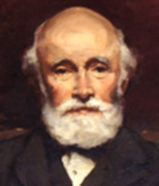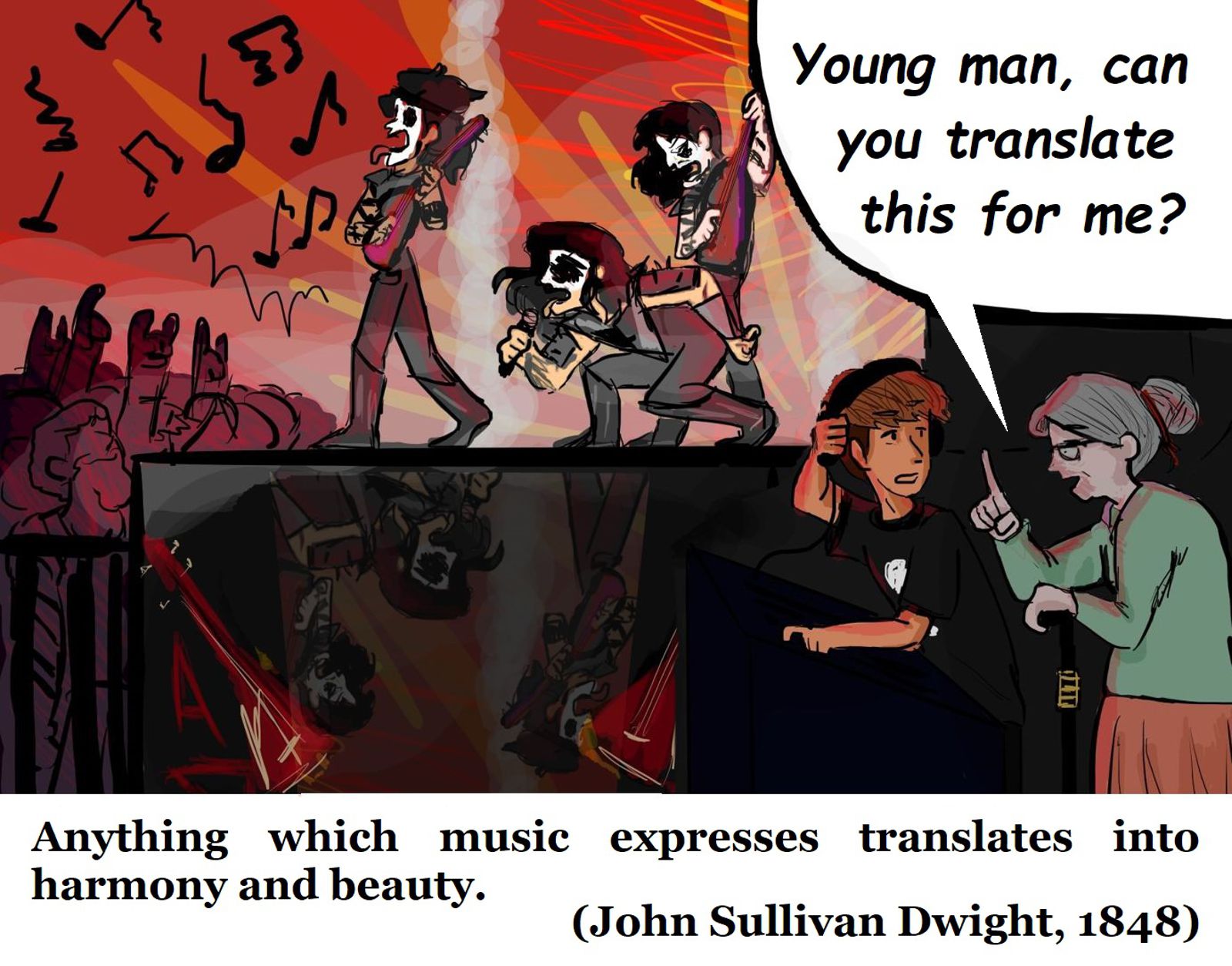|
Music and unity
 John Sullivan Dwight (1813-1893) was an American thinker, an influential music critic, and a member of the American Transcendentalist movement of the 19th century (which also included Emerson and Thoreau). As a young man he studied at Harvard and was ordained a Unitarian minister, but quickly decided to leave the ministry. He joined the Transcendentalist community at Brook Farm, and later became a music critic. In 1950 Dwight started his own journal of music, which was very successful, and dealt with theoretical and conceptual issues about the nature of music. John Sullivan Dwight (1813-1893) was an American thinker, an influential music critic, and a member of the American Transcendentalist movement of the 19th century (which also included Emerson and Thoreau). As a young man he studied at Harvard and was ordained a Unitarian minister, but quickly decided to leave the ministry. He joined the Transcendentalist community at Brook Farm, and later became a music critic. In 1950 Dwight started his own journal of music, which was very successful, and dealt with theoretical and conceptual issues about the nature of music.
The following text is adapted from Dwight’s essay “Music,” published in 1849 by his friend Elizabeth Peabody in a collection of articles on art, “Aesthetic Papers.” Here he describes music in the Transcendentalist spirit, as a universal languages through which we communicate with the deepest dimension of the reality, the unity of life and the universe. (Compare to Emerson’s “Over-soul”)
No other communion is as intimate as that which operates through music. Intimate – and yet most mystical. It is an intimacy that is not profaned by an external sense of familiarity, but is a meeting and communing with the ideal which never grows familiar. Why is this so, if not because the sentiment always tends towards unity, while thought always differentiates and splits?
[…]
The native impulses of the soul – or what we call the passions, or affections, propensities, desires – are, all of them, when considered in their essence and original undistorted tendency, divinely implanted loves. Union, harmony of some sort, is their very life. To meet, to unite, to blend by methods complex and quick, is their whole business and effort through eternity. They are attracted to what must also be their destiny: not to collision, not to excess followed by exhaustion, not discord, chaos, and confusion; but to binding ties of agreement and connectedness through all spheres, from the simplest to the most universal accords. Through these (how else?) the hearts of the human race would be woven into one mutually conscious, undivided whole, one living temple not too narrow, nor too fragmentary for receiving the Spirit of Good.
 Isn’t this announced in music, the natural language of these passions, which cannot express corruption nor any evil feeling, without ceasing to be music; which has no tone for any bad passion, and whatever it expresses translates into harmony and beauty? The blending of all these passions harmoniously into one becomes man’s central love, the deepest and most undivided life. This is the love of God […] to whom the soul seeks its way, by instinct however blind, through all these partial harmonies, learning by degrees to understand the universal nature of its desire and aim. Isn’t this announced in music, the natural language of these passions, which cannot express corruption nor any evil feeling, without ceasing to be music; which has no tone for any bad passion, and whatever it expresses translates into harmony and beauty? The blending of all these passions harmoniously into one becomes man’s central love, the deepest and most undivided life. This is the love of God […] to whom the soul seeks its way, by instinct however blind, through all these partial harmonies, learning by degrees to understand the universal nature of its desire and aim.
The sentiment of unity, the strongest and deepest sentiment of which a man is capable, the great affection into which all man’s affections flow — to find themselves, not lose themselves. When little desires conflict, it looks to the source, and immediately they are reconciled in passion for the glory of the whole. It lifts a person above the thought of self, by making him in every sense fully himself, by reuniting his prism-like multi-colored passions into one which is as clear and universal as the light. It is the sentiment which seeks only universal harmony and order, so that all things, whether of the inner or of the outer world, may be perfectly transparent to the love that is essential to them, and so that the only condition of peace and happiness, the consciousness of one in all and all in one, may never more be incomplete. That is what the common sense of humankind means by the religious sentiment — that is the pure essence of religion.
Music is the natural language of this sentiment, the main celebration of its worship, a celebration that cannot lose its sacredness. Because music cannot cease to be harmony, cannot cease to symbolize the sacred relationship of each one to all, cannot contract a stain, any more than the sunbeam which shines into all corners. Music cannot narrow or hide the message which it carries; it cannot lie. It cannot raise questions in the mind, or excite anything except pure enthusiasm. It is God's alphabet, and not man's, unalterable and incorruptible, suited for the harmony of the human passions and affections. It is sent to us, in the long winter of disharmony and conflict, to be a perpetual prototype and monitor, rather than a preview, of that harmony which must yet come.
|